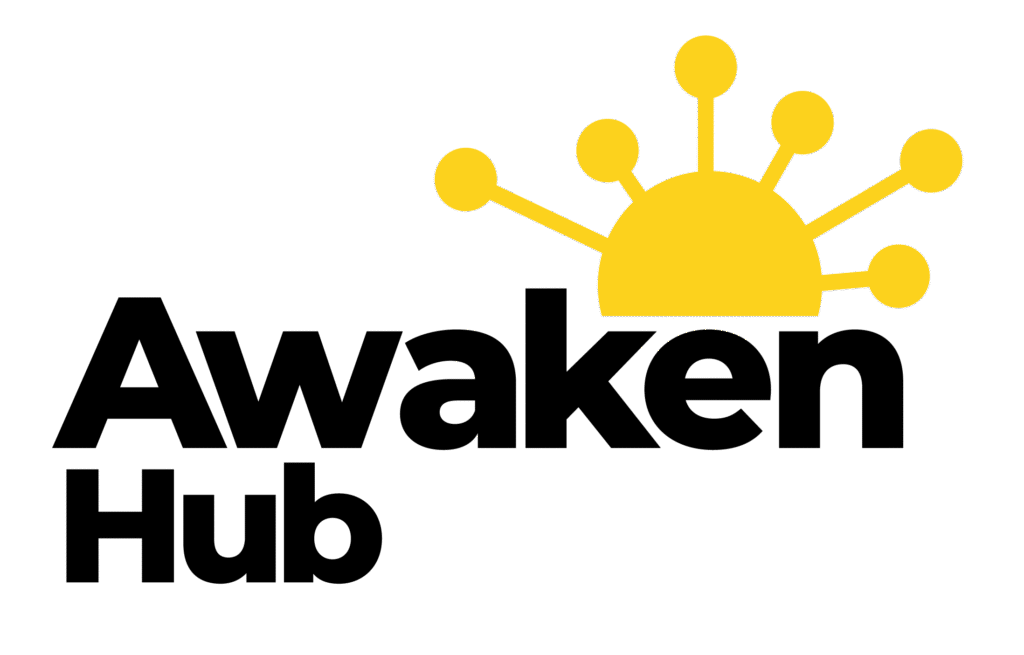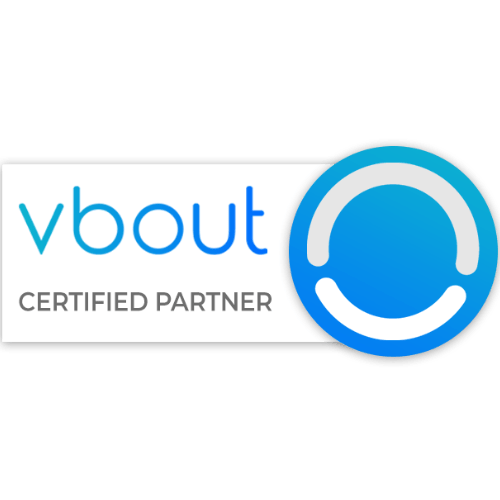Boost Your SEO with Effective Link Building
In the ever-evolving landscape of digital marketing, link building remains a cornerstone of effective search engine optimisation (SEO). As you…
In the ever-evolving landscape of digital marketing, link building remains a cornerstone of effective search engine optimisation (SEO).
Each link pointing to your website acts as a vote of confidence, signalling to search engines that your content is valuable and trustworthy.
This is particularly important in a competitive online environment where standing out can be a daunting task. By investing time and effort into building a robust link profile, you not only enhance your site’s authority but also improve its chances of ranking higher in search engine results pages (SERPs). Moreover, link building is not merely about quantity; it is equally about quality.
A well-structured link profile, comprising links from reputable and relevant sources, can significantly boost your site’s credibility. When you understand the importance of link building, you begin to see it as an integral part of your overall SEO strategy rather than a standalone task. This perspective allows you to approach link building with a more strategic mindset, focusing on cultivating relationships and creating content that naturally attracts links.
Ultimately, the goal is to create a sustainable and effective link-building strategy that not only enhances your SEO efforts but also contributes to your brand’s long-term success.
Summary
- Link building is crucial for improving a website’s SEO and increasing its visibility in search engine results.
- Different types of links, such as internal, external, and backlinks, have varying impacts on SEO and should be used strategically.
- High-quality, relevant content is key to attracting natural links from other websites and improving SEO.
- Guest blogging on reputable sites can help build valuable backlinks and increase a website’s authority.
- Social media platforms can be used to share content and attract natural links, boosting a website’s SEO.
Types of Links and Their Impact on SEO
Internal Links: Enhancing User Experience
Internal links connect disparate pages within your own website, guiding users through your content whilst also assisting search engines in understanding the structure of your site. By strategically placing internal links, you can enhance user experience and encourage visitors to explore more of your content, which can lead to lower bounce rates and increased time spent on your site.
External Links: Building Credibility
External links, on the other hand, are links that point from one website to another. These can be further divided into two types: inbound links (or backlinks) and outbound links. Inbound links are those that come from other websites to yours, and they are particularly valuable for SEO. High-quality backlinks from authoritative sites signal to search engines that your content is credible and worth ranking highly.
The Importance of Quality and Relevance
Conversely, outbound links direct users from your site to other websites. While these may not directly impact your site’s authority, linking to reputable sources can enhance your content’s credibility and provide additional value to your readers.
Creating High-Quality Content to Attract Natural Links

One of the most effective ways to build links organically is by creating high-quality content that resonates with your target audience. When you produce valuable, informative, and engaging content, you increase the likelihood that others will want to link to it. This could take the form of in-depth articles, infographics, videos, or even interactive tools that provide unique insights or solutions.
The key is to ensure that your content addresses the needs and interests of your audience while also being shareable across various platforms. Additionally, high-quality content often leads to increased engagement on social media and other online channels. When users find your content valuable, they are more likely to share it with their networks, further amplifying its reach.
This organic sharing can result in natural backlinks as other websites reference your work. Therefore, investing in quality content creation not only enhances your chances of attracting links but also establishes your brand as an authority in your niche. As you focus on producing exceptional content, remember that consistency is vital; regularly updating your site with fresh material keeps your audience engaged and encourages ongoing link-building opportunities.
Leveraging Guest Blogging for Link Building
| Metrics | Data |
|---|---|
| Number of Guest Posts | 20 |
| Domain Authority of Host Sites | Between 40-70 |
| Number of Backlinks Acquired | 150 |
| Conversion Rate | 5% |
Guest blogging is a powerful strategy for building links while simultaneously expanding your reach within your industry. By contributing high-quality articles to reputable blogs or websites in your niche, you can showcase your expertise while earning valuable backlinks to your own site. This mutually beneficial arrangement not only helps you gain exposure to new audiences but also enhances your site’s authority through association with established platforms.
When engaging in guest blogging, it is essential to approach it with a strategic mindset. Start by identifying blogs that align with your brand values and target audience. Research their content style and audience engagement levels to ensure that your contributions will resonate with their readers.
Crafting well-researched and insightful articles will increase the likelihood of acceptance while also encouraging readers to visit your site for more information. Remember that guest blogging should not be solely about acquiring links; it should also focus on providing value to the host blog’s audience. By prioritising quality over quantity in your guest blogging efforts, you can build lasting relationships within your industry while enhancing your link-building strategy.
Utilising Social Media for Link Building
In today’s digital age, social media plays a pivotal role in link building strategies. Platforms such as Twitter, Facebook, LinkedIn, and Instagram offer unique opportunities for sharing content and engaging with audiences. By actively promoting your high-quality content on social media channels, you can increase its visibility and encourage users to share it within their networks.
This organic sharing can lead to increased traffic and potential backlinks from other websites that discover your content through social media. Furthermore, social media allows you to connect with influencers and industry leaders who may be interested in sharing or linking to your content. Engaging with these individuals through comments, shares, or direct messages can open doors for collaboration and link-building opportunities.
Additionally, participating in relevant discussions or groups on social media can help establish you as an authority in your field, making others more likely to reference or link back to your work. By leveraging social media effectively, you can create a dynamic link-building strategy that complements your overall SEO efforts.
Building Relationships with Influencers for Link Building

Influencer marketing has gained significant traction in recent years, and building relationships with influencers can be a game-changer for your link-building efforts. Influencers often have established audiences that trust their recommendations, making them valuable allies in promoting your content. By collaborating with influencers who align with your brand values and target audience, you can tap into their networks and gain exposure for your website.
To build meaningful relationships with influencers, start by identifying individuals who resonate with your niche. Engage with their content by commenting on their posts or sharing their work, demonstrating genuine interest in their expertise. Once you’ve established rapport, consider reaching out with collaboration ideas that benefit both parties.
This could involve co-creating content, hosting webinars together, or even simply asking them to review or share one of your articles. By fostering authentic relationships with influencers, you not only enhance your chances of acquiring backlinks but also position yourself as a credible source within your industry.
Avoiding Black Hat Link Building Tactics
While the allure of quick results may tempt some marketers into employing black hat link-building tactics, it is crucial to understand the long-term consequences of such actions. Black hat techniques include practices like buying links, using automated software to generate backlinks, or participating in link farms—strategies that violate search engine guidelines. Engaging in these tactics may yield short-term gains; however, they often lead to severe penalties from search engines like Google.
Instead of resorting to unethical practices, focus on building a sustainable link-building strategy grounded in integrity and quality. Emphasise creating valuable content that naturally attracts links while fostering genuine relationships within your industry. By prioritising ethical practices in your link-building efforts, you not only protect your website from potential penalties but also cultivate a positive reputation among peers and audiences alike.
Measuring the Success of Your Link Building Efforts
To ensure the effectiveness of your link-building strategy, it is essential to measure its success regularly. Various metrics can help you assess the impact of your efforts on SEO performance. One key metric is the number of backlinks acquired over time; tracking this data allows you to identify trends and evaluate which strategies yield the best results.
Additionally, consider monitoring referral traffic from backlinks using tools like Google Analytics. This data provides insights into how much traffic specific links are driving to your site and which sources are most effective at generating visits. Furthermore, keep an eye on keyword rankings; improvements in rankings for targeted keywords often correlate with successful link-building efforts.
By consistently measuring these metrics and adjusting your strategy accordingly, you can refine your approach and maximise the benefits of link building for your overall SEO success. In conclusion, understanding the importance of link building in SEO is fundamental for anyone looking to enhance their online presence. By exploring various types of links, creating high-quality content, leveraging guest blogging and social media, building relationships with influencers, avoiding unethical tactics, and measuring success effectively, you can develop a comprehensive link-building strategy that drives sustainable growth for your website.
Embrace these principles as you embark on your journey towards improved SEO performance and increased visibility in the digital landscape.
Link building is a crucial aspect of any successful SEO strategy. It involves acquiring hyperlinks from other websites to your own, which helps to improve your site’s credibility and visibility on search engines. For more information on how link building can benefit your website, check out this informative article on search engine optimisation in Ireland. This article delves into the importance of link building in improving your website’s ranking and driving organic traffic. Additionally, it provides valuable insights on how to effectively implement link building strategies to boost your online presence.
FAQs
What is link building?
Link building is the process of acquiring hyperlinks from other websites to your own. These hyperlinks, or “backlinks,” are important for SEO as they signal to search engines that your website is a valuable resource.
Why is link building important?
Link building is important for SEO because search engines like Google use backlinks as a key factor in determining the authority and relevance of a website. Websites with a higher number of quality backlinks are more likely to rank higher in search engine results pages.
What are the different types of link building?
There are several types of link building, including natural links (acquired without any action on the part of the website owner), manual outreach (actively reaching out to other websites for backlinks), self-created links (such as adding a backlink to a forum or blog comment), and guest blogging (writing content for another website in exchange for a backlink).
How do you build quality backlinks?
Building quality backlinks involves creating valuable, relevant, and shareable content that other websites will want to link to. It also involves reaching out to other websites in your industry and building relationships to encourage them to link to your content.
What are the best practices for link building?
Some best practices for link building include focusing on quality over quantity, diversifying your backlink profile, avoiding spammy tactics, and regularly monitoring your backlink profile to ensure the quality and relevance of your backlinks.
What are some common link building mistakes to avoid?
Common link building mistakes to avoid include buying backlinks, using irrelevant anchor text, neglecting the quality of the linking website, and engaging in link schemes that violate search engine guidelines.











